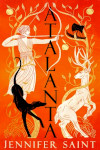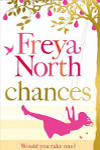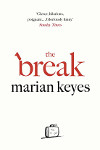Sasha Blake – The Wish
Posted 13th August 2010
Category: Reviews Genres: 2010s, Chick-Lit, Thriller
1 Comment

Some dreams push it a little too far.
Publisher: Bantam Books (Random House)
Pages: 436
Type: Fiction
Age: Adult
ISBN: 978-0-553-81916-8
First Published: 19th August 2010
Date Reviewed: 11th August 2010
Rating: 3/5
From the look of the cover, Blake’s The Wish looks like the Chick-Lit of Chick-Lit, so I was very surprised when it was more about getting away from money and living a normal life.
Lulu loves Ben, the son and heir of an entrepreneur. Ben just wants to get away from it all and in knowing Lulu he has found that there is a better life to be had than the one he lives. Ariel, Ben’s sister, wants more attention from her parents for all the good work she does, indeed she wants what Sunshine has, only for more virtuous reasons. Frank has a brilliant business – and he doesn’t know it, but it’s all down to his wife. And Sofia, his wife, has, does, and will stop at nothing to be the very best. Because being the most revered person is the most important thing in the world. Which is what Bessie believes too, even if you have to do one of the most hideous things ever in order to achieve it.
There are three levels to the book. Level one: money, pure and simple. The casino owners have it and they want more of it. Level two: getting away from money. Money isn’t the greatest element of life and is a poor, nay empty, substitute for love, family, and happiness. Level three: money. The filthy rich may have other things in mind but those who stray are often already too caught up to leave it.
The plot is completely character-driven. Blake tells the story through the eyes (though in the third person) of most of each of the main, and some of the secondary, characters. She could have got away with limiting the number of people she used because to be honest some of the characters favoured, although important in their own way, are all to similar to one another, and because there are so many people they overlap in the stories too many times. A couple of the more interesting characters (read: of difference status and mind) are dropped altogether soon after their introduction and while their purpose may have been amply served the difference in them would have enlivened the story further.
One of the themes is family. Frank Arlington dotes on his daughter, but when she jumps ship and goes to work as a stripper for a rival company he lets her get on with it. The Arlingtons have money but Frank knows that there are more important things like that and that his daughter should wallow in what she’s done because he had treated her fairly. Ariel wants her father to give her a promotion and goes to the rival when he doesn’t. It’s a bitter period of familial estrangement that’s wholly needed in a place where money has slyly replaced relationships.
Relationships are more important to these people than they realise. The core of the story rests in the decisions Sofia made when desperate to gain status. She never wavers, yet the person directly involved in her decisions does. Bessie was perhaps worse than Sofia, but she realises her mistakes, even though it’s too late (this is something you learn early on and thus not a spoiler).
I am undecided as to whether the book’s cover is a stroke of genius or a hindrance. On picking the book up I expected money, diamonds, shallow and narrow-minded people and while the book has plenty of all of those thing I was most definitely not expecting to read anything about war.
Yes, war. War has quite a lot to answer for in the character of Sofia. You wonder if she would have been the same person had she not experienced what she had. Certainly she learned the value of family, but at the same time she possibly learned that some people were expendable.
The problem with The Wish is that it is predictable and not unique. It’s a story that’s been told hundreds of times ever since casinos opened. Fortunately, Blake’s discussion of relationships and inclusion of money-driven yet not money-focused characters keeps the book above the water. She knew that she could use her story to provide a lesson to her readers but knew that she was limited by this same story from going too far without changing the genre and plot completely. I say that within the confines she has done very well. It will be interesting to see how, if she so chooses, Blake will continue on this theme in the future.
I received this book for review from Transworld Publishing, Random House.
Related Books
Freya North – Love Rules
Posted 16th May 2010
Category: Reviews Genres: 2000s, Chick-Lit, Domestic
Comments Off on Freya North – Love Rules
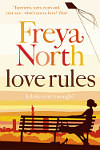
…And then you sit down to some Chick-Lit for some light relief – and find it to be anything but.
Publisher: Harper Collins
Pages: 422
Type: Fiction
Age: Adult
ISBN: 978-0-00-718036-3
First Published: 2005
Date Reviewed: 26th March 2010
Rating: 3/5
Just to make it clear: the title refers to rules, policies. It isn’t a statement akin to “love’s awesome!”
Thea believes in true love conquering all, knights storming castles to rescue the princess, and also – perhaps wrongly as she later considers alternatives – sparks from the start defining which men are the ones worth going for. Alice doesn’t mind love, in fact she likes it very much but tends to get diverted by the physical and has never chosen the right man. As Thea meets a man who sweeps her off her feet Alice plans to marry her best friend, the antithesis of the men she’s dated. But as both continue their lives they find that simple choices may not be so simple in reality and that they’ll have to re-assess their ideas once more.
Love Rules appears to promise a dose of easy summer reading, just what you’d expect from a book of its genre, and for a while this is the case – in fact the book is so easy to read at times it’s dull. Admittedly it can’t be said that Chick-Lit is as riveting a genre as some, but there is generally a plot that evokes interest and the want to know what happens. The vast majority of Love Rules sadly requires you to question whether you can be bothered because it just saunters along like main characters Thea and Saul around the streets of London. However this may well be a clever device used by North to further explain the latter quarter of the book. Be sure that the book does not stay boring, it turns it’s back on the Chick-Lit genre to provide hard-hitting and oft difficult to read material. North convincingly lures us into thinking that the lives of her characters are ordinary – and then crashes down on us with the idea that it’s ordinary life that can often have the problems. We always assume that it’s busy lives, unstable families, and the like that have problems – that’s natural, right? But North shows that “ordinary” can be a cover up for darker elements. In a way she’s saying, “watch out for ordinary” and you can understand her cautions – you never expect things out of the ordinary when things are ordinary to begin with.
North confuses us adeptly – is Alice wrong in her thoughts, shouldn’t her husband be around more? This has the effect of subtly skimming over Thea – her story is nice, it doesn’t require thought. There are a few things that don’t add up, but unlike Marian Keyes’s This Charming Man you can’t even say that they’re hinted at – they are, but it’s less than a hint, it’s more a fifth of a hint. Later, once the crux of the story is in full throws North turns her attention directly to the reader, to you. She asks you, as though you’re discussing the book together, what should happen, what we should feel, who is wrong, who is right, are we really sure about that, but isn’t it…? She does this just before launching into the book’s conclusion, in a way that explains, without actually saying, that there are many conclusions to come to. Hers is just one of them. As the reader you start to question yourself, no matter what opinion you’ve come to. I would take a guess as to what the majority of readers would feel should happen and say that in that respect it is an easy read. North wants to approach the boundary but she knows not to alienate her audience and so moves carefully, giving you something to think about but not letting you get too disheartened – while yet not appeasing completely. This all sounds very confusing but in fact it’s a stroke of genius on her part.
As said, the book becomes very difficult to read near the end and although the ending is good it’s not the happy ending you’re likely expecting. Beyond the issues raised there is a lot of upset to contend with and a lot of thoughts to digest. There’s also the addition of the other side of the story, although the other side itself isn’t so represented the associations of it are brought to the fore and evaluated. The characters may not change their minds but they debate on the issues and while people may challenge this and say it’s a good step but not enough it’s enough for the book.
Writing-wise the book is average. North has employed an interchangeable style; for the most part the book is in the third person but it sometimes moves to first and every so often to present tense as a fly-on-the-wall. When a change in tense happens during a chapter, which becomes more often as the plot takes off it’s mask, a re-read of the first few sentences is necessary to adapt to that change. North obviously likes the individuality it provides but for the reader it’s an irritation. Also of an irritation is the constant use of the word “effervescent”. Indeed it’s a fine word, but it’s obvious and memorable when big words are repeated and there are plenty of synonyms available. In the case of the chapters they could have been better defined, whole chunks of the book go by without a proper break.
As someone who is supposed to supply details that will help you decide if this is a book for you I apologise for being so vague. I can’t tell you any more because it would render the book spoiled and I feel that this is alright.
Love Rules takes love and what it means and causes and dissects it. It is not a valuable read, per se, but it is a good look on morality not usually so observed in the genre (and that’s forgetting the issue itself and concentrating on time and effort given). Pick it up if you will, we decide our own boundaries.
Related Books
Freya North – Secrets
Posted 14th April 2010
Category: Reviews Genres: 2000s, Chick-Lit
Comments Off on Freya North – Secrets

Freya North has numerous publications under her belt and often makes use of characters for more than one book without creating a saga. Her individuality within the chick-lit genre has earned her many fans and a literary presence nationwide.
Publisher: Harper Collins
Pages: 478
Type: Fiction
Age: Adult
ISBN: 978-0-00-724594-9
First Published: 2009
Date Reviewed: 30th June 2009
Rating: 3/5
Secrets is currently one of the recommendations that comes up if you view chick-lit on Amazon – which is how I came across it, having never heard of North before. The cover is radiant in its shades of pink and it seems from the last few releases that the publishers aim to continue this unique style. It’s certainly eye-catching, something obviously worked on to achieve that effect. North herself has said that she judges books by their cover, and first impressions count.
Tess lives in London with her daughter Em. Her landlord wants his rent and there’s a knock on the door every day. But Tess has read an advertisement for a house-sitter in Saltburn and acts on impulse, setting up an interview and rushing north the very next day. Joe doesn’t take to her too well, her slightly over-powering nature over decisions for his big old house apparent before he’s even given her the job – in fact, did he give her the job? Didn’t she just turn up and end up staying? Neither Tess nor Joe particularly favour each other but as time goes on they inevitably find the things that irritated them turn to appreciation. Joe has many women on the go and a libido to equal the number. Tess also has her secrets. So how will they both fair when together?
The first thing that may strike you as a reader is the way North writes. She makes use of all tenses and refers to her characters herself (North plays narrator) as well as from their own viewpoint and in the third person. She jumps back and forth between tenses as though she’s set paragraphs to a formula. This will either be a welcomed change to most authors’ work or something you come to dread as you pick up your copy for another sitting.
Initially the story is vague, Tess is just someone, Em could possibly be her friend, and the knocks on the door might be her violent husband. All are explained in due course, though the latter much later in the book, though at first the reader is thrown directly into the present situation with no real knowledge of Tess’s background or character. It becomes quite confusing to learn that Tess is more cultured than you’d imagined from the descriptions given.
Yet North creates an even greater problem for our relationship with Tess. To being with, Tess is headstrong, intelligent, and ill-fitting of her humble London surroundings. As her story draws ever nearer the end she’s portrayed as weak, ditzy, and much more suited to her rented flat in the capital. Fortunately similar cannot be said of Joe who remains about the same. In fact the best aspect of the book has to be the way North has included Joe. He is given just as much time as Tess and is as detailed as her too. His inclusion makes North one of the only chick-lit authors men could be unashamed to read.
The story is solid – in its stoic way. There are no moments of excitement or really anything to keep you reading other than the descriptions of the characters which, to be fair, are top-notch, but unless you hit it off with the characters within the first few chapters there’s no reason to continue. The story, without revealing anything that couldn’t be predicted, is this: a penniless single mother runs away to look after a house where she falls in love with the owner and they live together. The only thing that isn’t predictable revolves around the house. Don’t get too attached to it, North causes quite the unnecessary upset.
Apparently there are secrets in this book, as the title suggests. But what’s “revealed” is nothing more than you’d already been introduced to or teased about and are simply things you knew but the characters didn’t share with one another. The book hangs on the premise of these so-called secrets – ultimately meaning that the book is a flop.
However all of the above pale in comparison to this, the last point I will make. As the characters get together and struggle through what life throws at them – which really isn’t much over the course of the book – Tess gets soppier and soppier. The narrative gets gushier and it becomes an incredibly cheesy romance book, the kind of thoughts and dialogue you’d expect from a Disney movie. If Tess dressed in a ball-gown and broke into song you’d either stomp back to the bookstore and demand your money back, or you wouldn’t bat an eyelid for all the surprising it’d provide.
With a little more thought, Secrets could have been a winner as it’s obvious North has the skill to be the best. As it is however, beyond the illustrious first chapters it’s no more interesting than your own summer holiday on the coast of a county near you and there is nothing to remember afterwards. You might as well just keep living your own regular life and borrow your other half’s books – it’s what Tess is doing.
Related Books
Marian Keyes – This Charming Man
Posted 4th April 2010
Category: Reviews Genres: 2000s, Chick-Lit, Domestic
Comments Off on Marian Keyes – This Charming Man
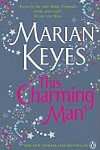
Marian Keyes is ahead of the game. One thinks Chick-Lit and her name comes up. She has made that name for herself over the years with regular releases and generous helpings of her irrepressible Irish humour. Her books are the ultimate in modern women’s holiday reading.
Publisher: Penguin
Pages: 885
Type: Fiction
Age: Adult
ISBN: 978-0-141-02675-6
First Published: 2008
Date Reviewed: 10th May 2009
Rating: 4/5
Copies of This Charming Man are currently sitting on shelves in every book store and supermarket in the UK; it’s star-struck and ironically charming cover self-assured in it’s ability to catch the eyes of passers by. The grey background of the otherwise glossy cover speaks volumes, though they are best reserved for an epilogue wherein the plot cannot be spoiled.
I admit I had serious troubles in finishing my last attempt at a Keyes novel, Angels, which seemed to go nowhere and had as much interesting content as a bottle of flat lemonade, but something made me want to give the woman a second chance and the knocked down price was tempting.
The plot revolves around three women (the blurb says four but the fourth gets little airplay) trying to make head and tails of the sudden marriage of one Paddy de Courcy, a politician with an impeccable record. Each have had more than their fair share of history with the man and the book studies them as they move from pain to happiness.
There’s Lola, Paddy’s girlfriend, a stylist with Molichino hair – purple, to use a non-Prada-fan’s word. There’s Grace, a journalist, and there’s Grace’s sister Marnie who fifteen years on is still not over Paddy and has let her anguish rule her life. The book focuses on each of them, chapter by chapter, sometimes running parallel and at other times giving details about one character for one period of time. Lola just wants to get her life back together, Grace wants to frame Paddy for the hurt he’s caused her family, and Marnie is still waiting in hope that he’ll come back to her while she drinks and loses her children and husband.
On the face of it the book is very stereotypical of the genre, an easy read that is as predictable as it is un-stimulating, and it takes a good half or so of the story for this to change. What starts out as a light gushy read turns into a rather sinister exploration of domestic violence and at times it’s quite frightening. The first displays of this come at the end of the first chapter but it’s like a sub-plot, almost a completely different story that bares no relation to the main one. But as the book continues and connections between each character start to form the reason for the notes become clear. It’s a cleverly planned device that creeps up on you before you realise what’s happened.
The chapters have all been given individual treatment depending on which character is in focus. Lola’s take the form of diary entries and are quite sparse in punctuation and grammar. This can come as a shock at first and will prove an irritation if one is looking for an emotive read as the emotions are lost in the errors; but all entries are dated in detail and it appears Keyes has put a lot of effort into making sure she never re-uses a particular time of day. Grace’s chapters are narrated by the author and written in full as are Marnie’s, however whereas Grace’s are typical narratives Marnie’s are drenched in repetitive sentences and thoughts as she becomes ever more a slave to the drink.
As expected for a book revolving around domestic and sexual violence, sex is referred to many times, though a good amount of that time is reserved for innuendo of a far more innocent if explicit nature. There is also plenty of swearing and racial humour, the latter being written in such a way as to subtly condemn racism. There is little in the way of “big words”, any book lover looking for a masterpiece will not find it in this release.
The biggest drawback of the book is sadly part of Keyes’ writing style. It often drags for short periods of time during which a closing of it and finding something else to do strikes as preferable. Thankfully as the story hits crunch time the narrative speeds up considerably. The other drawback, in a way, is the page number and the reasons for why it appears so long. The font is big, there is a lot of dialogue, constantly going back and forth in short blips between characters, and many breaks in parts. If structured like a regular novel the book would lose a good third or so of its thickness.
But away from these negatives stands a solid look at society today and many of the issues facing it. Keyes demonstrates a large amount of awareness for the world and a heart full of passion for it. The book forces you to really think about things that you may not want to or feel comfortable with and that is it’s biggest success. By wrapping her novel in a coat of Chick-Lit silk Keyes has brought those issues to the forefront of her fan’s minds while still holding up on her promise of an escapist fantasy.
It’s pleasurable, it’s fun, it’s fearfully realistic – and it’s all in one package.











